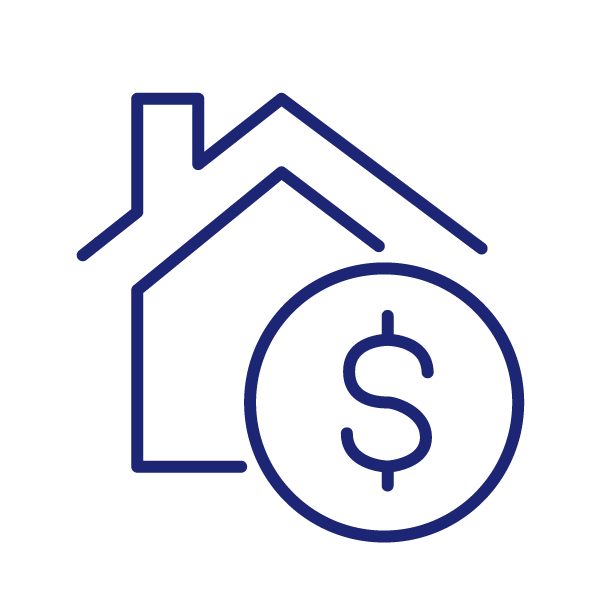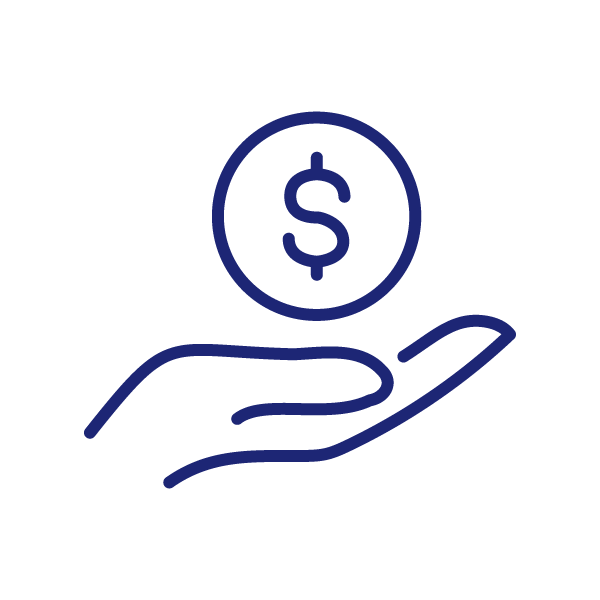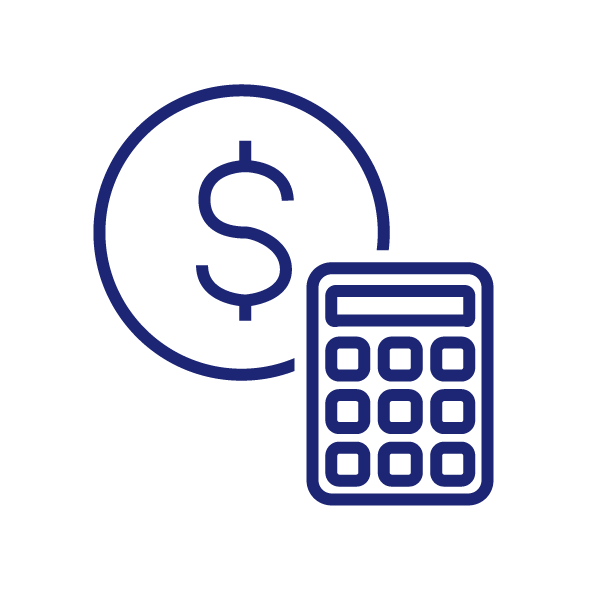For many Canadians, the new year is a time to reset financially – “improving my finances” is commonly a top resolution made for the year ahead. Starting the new year financially strong is a great goal and a personal objective that can be easily kept – with the right approach. Like most resolutions – such as eating better, exercising more or becoming better organized – strong personal finance management is most likely to be achieved through smart and steady progress and a realistic plan.
Here are three steps to improving your money management in 2024.
1. Build a strong foundation
 |
Reaching any goal in life requires a strong foundation – after all, it’s important to know where you stand and what you want to achieve before you can create a plan to get there. Improving your finances, including building better savings and spending habits, doesn’t happen with the flick of a switch. Rather, it involves laying some groundwork and taking specific and measured steps to be taken over time. When it comes to improving your money management in the year ahead, here’s how you can get started: |
Define your goals: Do you have a specific goal in mind you would like to save for – such as a new car, trip or appliance? Do you want to pay off a credit card debt or set aside a certain amount by the end of the year? Having a clear goal can help you stay focused, even when times get challenging.
Be sure to make your goals realistic – there’s nothing more discouraging than an unattainable objective. Making steady progress towards that goal, on the other hand, can inspire you to stay on track.
Create a realistic budget: With your sights set on a savings goal, it might be tempting to create an aggressive budget and plan that has you reaching it as soon as possible. If your budget involves too much cutting out of the things you love to do, however, it won’t be sustainable.
Just like it’s hard to stick to a diet that involves no treats or favourites, it’s challenging to stick to a budget that leaves no room for the life you want to live. Creating a sound budget that enables you to set aside savings each month – while taking your lifestyle into account – is the start of a strong financial foundation.
Track and reduce unnecessary expenses: As part of your budgeting exercise, track your spending over a month’s time. Take a look at your credit card and banking account statements, save your receipts and/or itemize your purchases as you make them. In doing so, you can gain a clear picture of where your money is going.
Tracking your expenses is often an enlightening experience for people – many discover subscriptions they didn’t realize they were still paying for, services they don’t really need, and/or money spent on items they don’t value. Once you’ve tracked your expenses, see where you can trim your costs and how you can allocate them to savings.
2. Become familiar with savings accounts
 |
In Canada, there are several types of savings accounts designed to help you maximize your savings. Some are tailored to a specific goal – such as retirement or buying a home – while others are simply designed to accelerate your savings for whatever objective you’re aiming to achieve. Here are some of the most popular plans and accounts: |
Registered Retirement Savings Plan (RRSP): A Registered Retirement Savings Plan (RRSP) is a registered investment account designed to help Canadians save for their retirement. It has specific benefits that make it particularly beneficial, including:
- Your money grows on a tax-deferred basis until withdrawn in retirement, which means your money can grow faster
- You can deduct RRSP contributions from your taxable income, helping to lower your tax bill today
- You can borrow money from your RRSP to pay for education or buy your first home
- You can carry forward unused contribution room from previous years
- You can hold a range of investments in your RRSP, including stocks, bonds, guaranteed investment certificates (GICs) and mutual funds.
Tax-Free Savings Account (TFSA): A Tax-Free Savings Account (TFSA) is a registered investment account you can use to save for any goal tax-free. Benefits of a TFSA include:
- You pay no tax on your investment earnings
- You can contribute even if you’re retired or not employed and up to any age
- You can carry forward unused contribution room from previous years
- Your money can be withdrawn at any time, for any reason, with no penalty
High-Interest Savings Account (HISA): A High-Interest Savings Account (HISA) offers more interest on your balance than a regular savings account. The structure of High-Interest Savings Accounts can vary by financial institution – for instance, with some, you must carry a minimum balance to earn the highest interest available. With others, you might earn a more moderate interest rate but have fewer requirements in terms of your balance.
One of the main advantages of a HISA is the availability of funds – you can withdraw your money at any time, whenever you need it, with no tax implications.
First Home Savings Account (FHSA): The First Home Savings Account (FHSA) is a registered savings account that allows prospective Canadian homebuyers over the age of 18 to save a maximum of $40,000 tax-free, with a contribution limit of $8,000 per year, towards their first home.
If you already own a home but have an adult child or grandchild who is saving for their first home, you can gift money tax-free to invest in an FHSA – once it’s withdrawn to purchase a home, there are no tax implications to you, making it an efficient way to help the next generation achieve their goal of homeownership.
3. Manage your mortgage for savings
 |
Did you know? Your mortgage can be a powerful tool to help you achieve your money management goals in 2024. Here are some ways you can leverage your mortgage for savings: |
Mortgage refinancing: Refinancing your mortgage is a popular way to consolidate higher interest rate debt, helping you save on interest costs.
Refinancing involves taking out a new mortgage to pay off your original loan. And, because of the equity you’ve built up in your home, you have the option to borrow more on your new mortgage than what you owe on your current one, which means you’ll have cash left over. That cash can be used to pay off other debt that most likely is being carried with a higher interest rate than your mortgage. Not only does refinancing help you bring your borrowing costs down, but it also simplifies your debt and provides a greater sense of financial control.
A Home Equity Line of Credit (HELOC) is another way to tap into the equity in your home and a tool you can use to consolidate higher interest-rate debt. Because a HELOC is a secured loan against your home, interest rates are generally lower than other borrowing options, helping you save on interest.
Learn the different ways you can leverage your home equity and how to choose an option that works best for you.
Accelerated mortgage payments: If one of your money management goals for 2024 is to pay down your mortgage faster, consider accelerating your mortgage payments. There are several strategies you can use to become mortgage-free faster – choose the one that best fits your goal and financial situation.
Property tax service: Your property tax bill is a significant regular expense. If you’re finding that it’s hard to keep up with the payment, consider the MCAP Property Tax Service. With this service, MCAP will collect a portion of your property taxes regularly, along with your mortgage payment and pay your property tax bill on your behalf. By using this service, you can spread out your tax payments over the year (making for more manageable payment amounts), avoid the possibility of late payments and have one less bill to worry about.
Insurance review: One of the most important ways to maintain a strong financial position in 2024 is to ensure your most important asset is protected – your home. Mortgage Life and Disability Insurance offers the comfort of knowing that your family and your property are protected should the unexpected happen. With MCAP’s Home Mortgage Protection Life and Disability Insurance, you gain coverage for illness, injury or loss of a loved one, helping you and/or your family achieve financial security.
A healthy credit score: Should you be looking to refinance your mortgage or apply for a Home Equity Line of Credit, a healthy credit score can help you qualify for these options and obtain a competitive rate at the same time. In general, maintaining a strong credit score is an important financial priority – a good score is a tell-tale sign that your money management is on the right track. Discover ways to build a strong credit score.
Improving your money management is an excellent – and achievable – goal for the year ahead. These tips can help you develop a strong financial position in 2024 and beyond!




